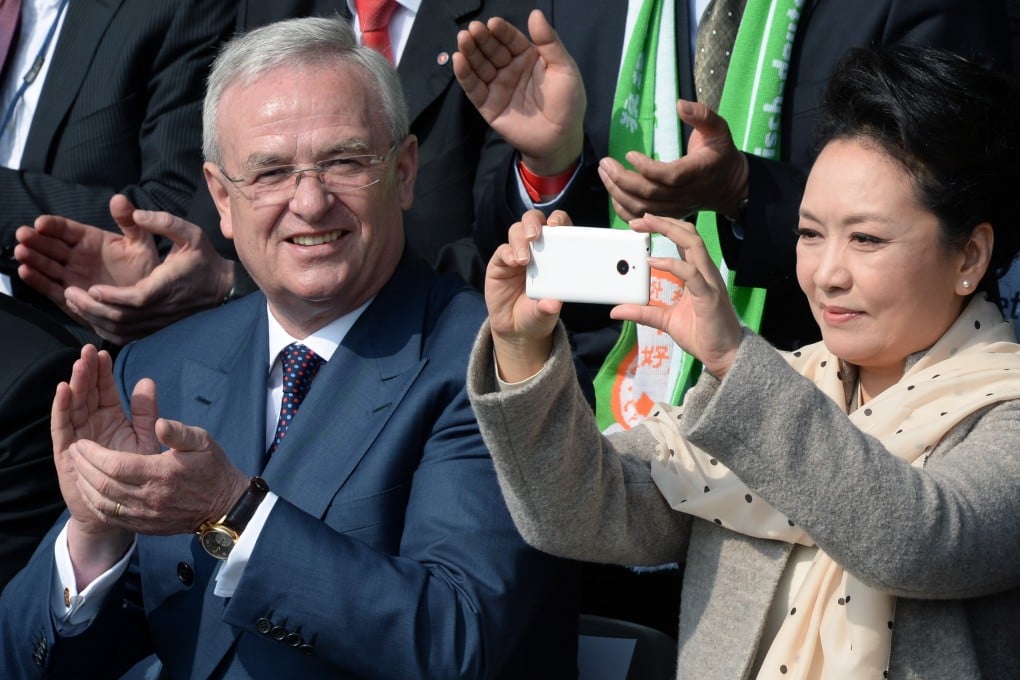It should come as no surprise to anyone that top officials at smartphone sensation Xiaomi are once again busy buzzing on their microblogs, since online hype has become a staple of this fast-growing company. But I was somewhat surprised that co-founder Lei Jun took time out from his usual hype to shoot down rumors of tie-ups with two of China's leading Internet companies, hinting at his own big ambitions to soon take a spot alongside the "Big 3" of Alibaba, Tencent (
0700.HK) and Baidu (Nasdaq: BIDU). Meantime, ZTE's (
0763.HK; Shenzhen: 000063) plans to position its nubia brand of smartphones as a higher end product got a nice boost from China's first lady Peng Liyuan, who made a point of being seen using one of the models during her husband's trip to Europe.
I typically try to avoid writing too much about Xiaomi in this column, as the company's executives put out more messages on their microblogs each week than all of China's other top tech executives combined. But in this case, the fact that Lei Jun took time to personally and very publicly shoot down two separate rumors of tie-ups involving his company, one with Alibaba and the other with Tencent, are interesting and worthy of a closer look. That's because they reflect Lei's ambitions to take his own place among China's tech titans.
The first rumor saw the tech world buzzing last week with talk that Tencent, China's most valuable Internet firm, was planning to invest in Xiaomi. Such an investment wouldn't seem unrealistic, since Tencent has been buying big strategic stakes in many companies these past few months, usually in the 15-30 per cent range. What's more, all of the "Big 3" Internet firms have shown an interest in acquiring smartphone makers in recent months. But Lei Jun must have decided that enough was enough, and personally said on his microblog saying the chatter
was all just rumors.
Around the same time, similar talk was buzzing that Xiaomi might be interested in tying up with Alibaba, after Lei Jun and Alibaba's equally chatty founder Jack Ma spoke together at a recent meeting. A magazine article quoted Ma as telling Lei that an Alibaba-Xioami tie-up would pose a formidable challenge that Tencent and Baidu wouldn't be able to counter. Lei posted the magazine article's comments in his microblog, adding his own thoughts that he didn't understand why Ma was so excited. That seems to imply that Lei is happy with his current investors, and that no such tie-up is
coming anytime soon.
This kind of chatter looks like Lei's way of trying to show how desirable his company has become in just three years since its launch. His willingness to comment on tie-ups with such major players also seems to reflect Lei's own growing confidence and his hubris, as he aims to build Xiaomi into one of China's top tech companies. I do think Xiaomi will continue its rise for the next couple of years, though it may have more difficulty over the longer term due to the high competition and rapid change in the mobile gadget sector.
Executives at ZTE's smartphone division were equally chatty on their microblogs over the past week, after first lady Peng Liyuan was spotted using a nubia smartphone on her trip to Europe with husband and President Xi Jinping. Three different ZTE executives tweeted about Peng's use of the model, called Z5 mini, including nubia
division chief Ni Fei. An executive at e-commerce giant JD.com also tweeted on the subject, pointing out the model would be exclusively
available on his site.


